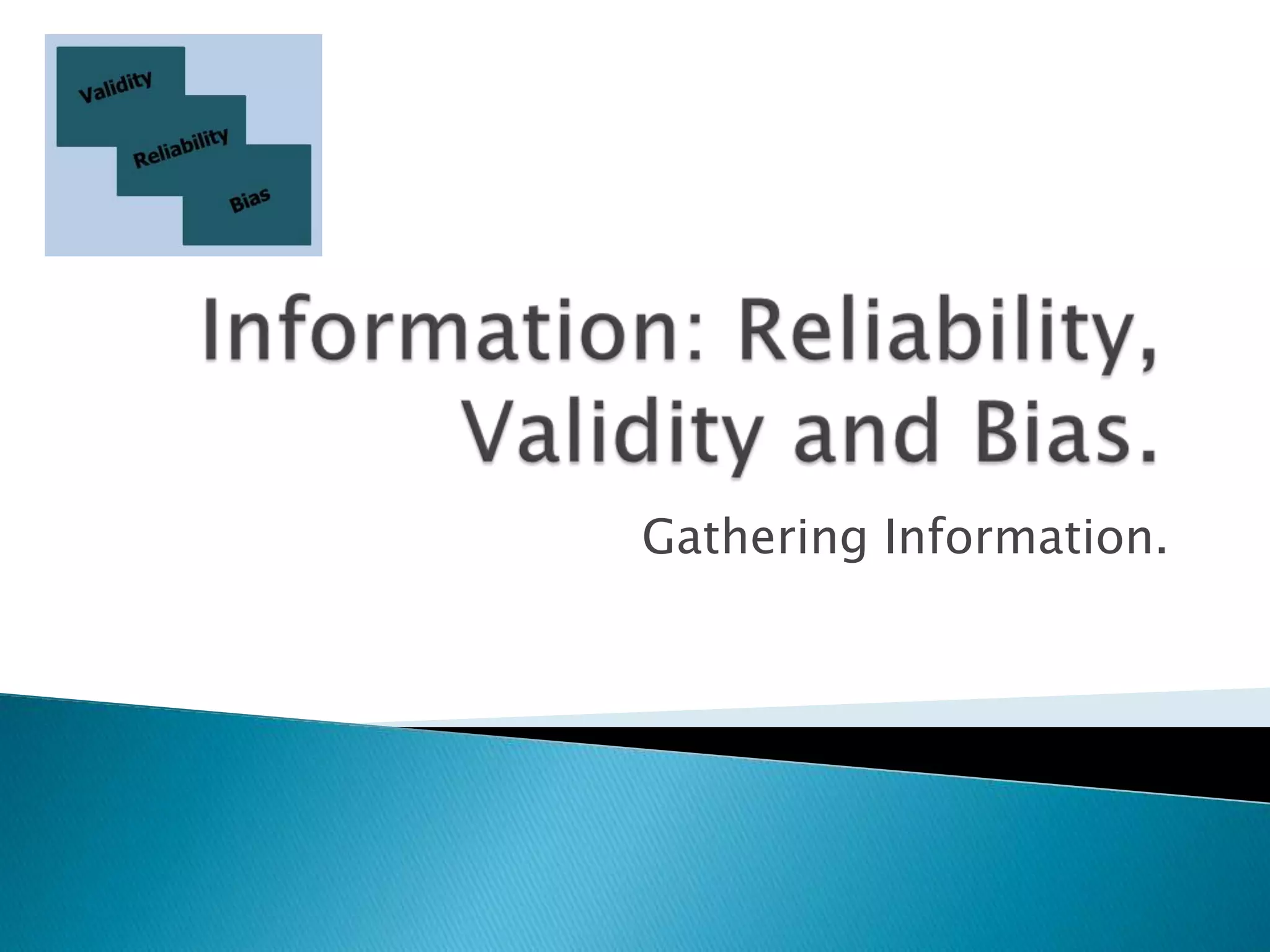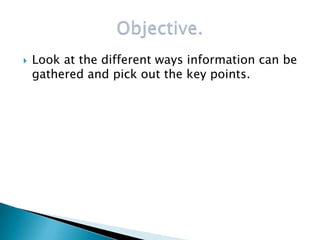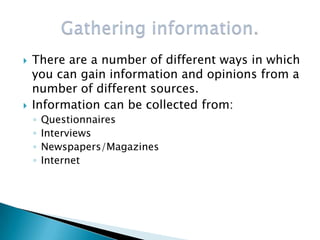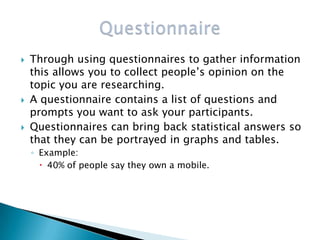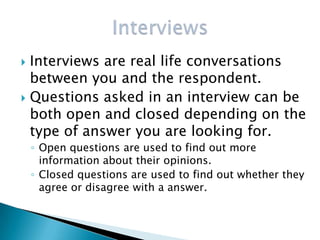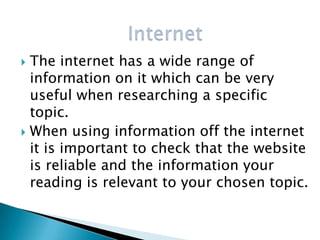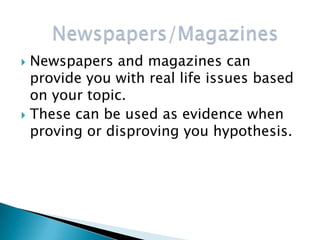This document discusses different methods for gathering information, including questionnaires, interviews, newspapers/magazines, and the internet. Questionnaires allow collecting people's opinions through a list of questions, and can provide statistical data. Interviews involve real conversations using open or closed questions. The internet provides a wide range but unreliable information must be avoided. Newspapers/magazines supply real examples for research topics.
